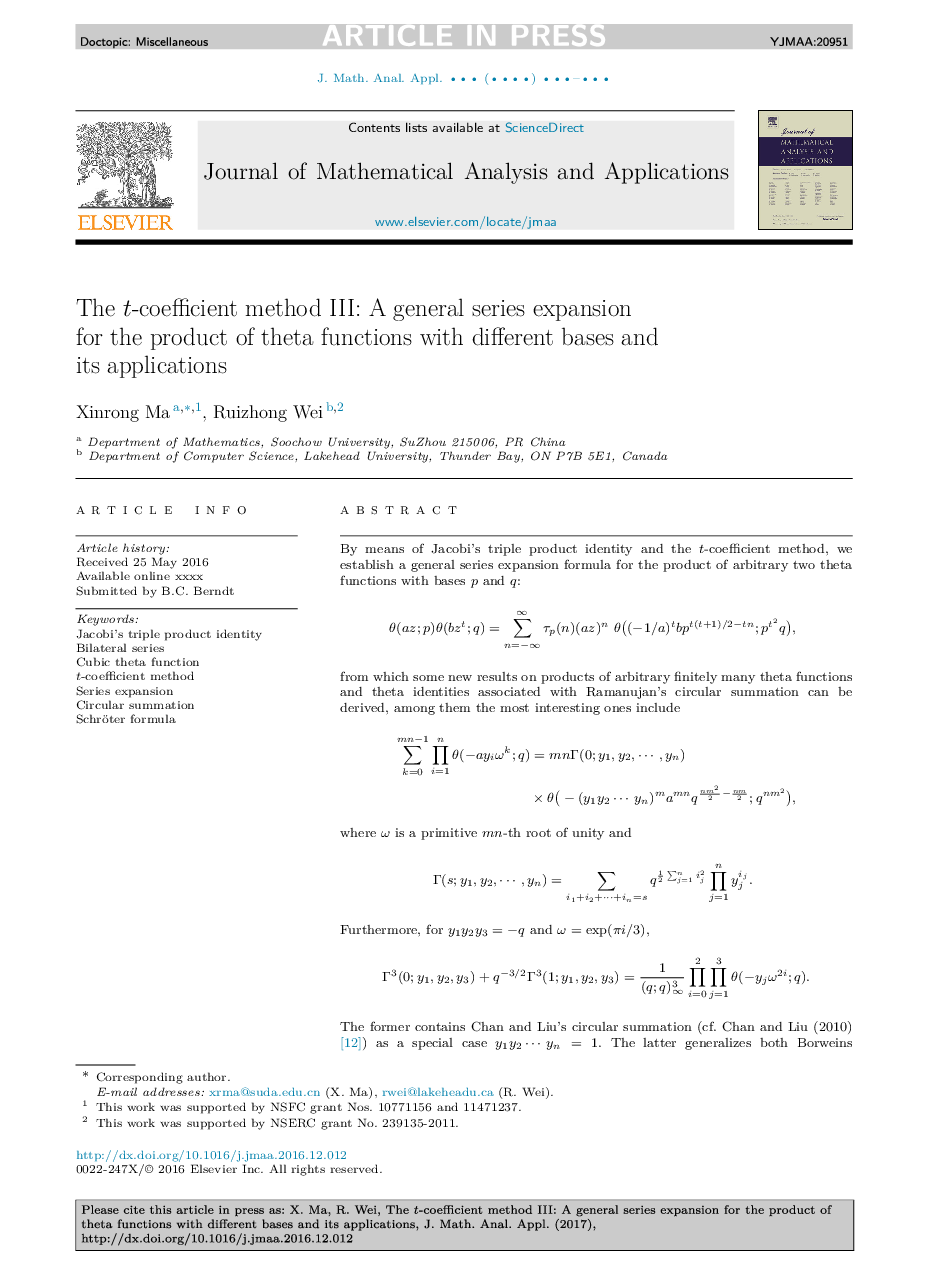| Article ID | Journal | Published Year | Pages | File Type |
|---|---|---|---|---|
| 5775070 | Journal of Mathematical Analysis and Applications | 2017 | 21 Pages |
Abstract
By means of Jacobi's triple product identity and the t-coefficient method, we establish a general series expansion formula for the product of arbitrary two theta functions with bases p and q:θ(az;p)θ(bzt;q)=ân=âââÏp(n)(az)nθ((â1/a)tbpt(t+1)/2âtn;pt2q), from which some new results on products of arbitrary finitely many theta functions and theta identities associated with Ramanujan's circular summation can be derived, among them the most interesting ones includeâk=0mnâ1âi=1nθ(âayiÏk;q)=mnÎ(0;y1,y2,â¯,yn)Ãθ(â(y1y2â¯yn)mamnqnm22ânm2;qnm2), where Ï is a primitive mn-th root of unity andÎ(s;y1,y2,â¯,yn)=âi1+i2+â¯+in=sq12âj=1nij2âj=1nyjij. Furthermore, for y1y2y3=âq and Ï=expâ¡(Ïi/3),Î3(0;y1,y2,y3)+qâ3/2Î3(1;y1,y2,y3)=1(q;q)â3âi=02âj=13θ(âyjÏ2i;q). The former contains Chan and Liu's circular summation (cf. Chan and Liu (2010) [12]) as a special case y1y2â¯yn=1. The latter generalizes both Borweins and Garvan's well-known cubic theta function identity and Schultz's bivariate-generalization (cf. Borwein et al. (1994) [9] and Schultz (2013) [28]), in which y1=y2=y3=Ïq1/3 and y1=y3/z1,y2=y3/z2,y33=âqz1z2 respectively.
Related Topics
Physical Sciences and Engineering
Mathematics
Analysis
Authors
Xinrong Ma, Ruizhong Wei,
